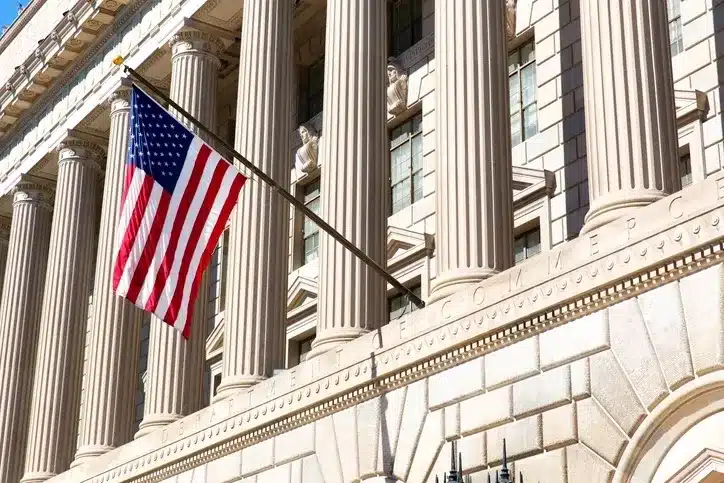Our services include: Export Controls Compliance • Licensing • Commodity Classification and Jurisdiction Requests • Deemed Exports and Reexports • Advisory Opinion Requests • Voluntary Self Disclosures • Enforcement Proceedings • List Removal Requests • Antiboycott.
The U.S. Department of Commerce’s Bureau of Industry and Security (BIS) is responsible for regulating the export, reexport, and in-country transfer of most commercial items of U.S.-origin, often referred to as “dual-use” items, which are those having both commercial and military applications. BIS administers the Export Administration Regulations (EAR), and a dual-use item (including commodities, software, and technology) may be subject to the prohibitions and licensing requirements of the EAR based on its classification on the EAR’s Commerce Control List (CCL), and its destination, end-user, or end-use.
If an items is not listed on the CCL with a corresponding Export Controls Classification Number (ECCN), it is designated as EAR99, which generally consist of low-technology or consumer goods, and do not require a license in many situations. However, exports, reexports, and in-country transfers of EAR99 items to BIS embargoed countries, certain categories of end-users, or otherwise involving certain prohibited end-uses, may also require a BIS license.
While BIS regulates dual-use items, the U.S. Department of State’s Directorate of Defense Trade Controls (DDTC) regulates the export, reexport, and transfer of primarily defense articles and defense services, through the International Traffic in Arms Regulations (ITAR). Our export controls lawyer represents clients before these U.S. Government agencies, and advises them on issues invoking relevant laws and regulations, including the unique export controls on Russia and China.
We provide clients with routine transactions advice, including drafting legal advisory opinions, for issues invoking BIS or DDTC administered export controls authorities. Whether an issue is as simple as determining if an item intended for export is even subject to U.S. export controls, or more complex in nature, clients rely on our advice and support to ensure compliance with the ever-changing export controls legal landscape. We also assist client businesses in the design and administration of their export compliance programs, including risk assessments and training.
Items subject to the EAR may require a license or license exception from BIS for their export, reexport, or in-country transfer, based on the intended destination, end-user, or end-use. We assist clients in determining applicable BIS licensing requirements for their intended transactions, and represent them before BIS for the submission of any necessary license applications.
In some circumstances, transactions with certain U.S. sanctioned or embargoed countries, regimes, and persons can also invoke simultaneous jurisdiction by the U.S. Department of the Treasury’s Office of Foreign Assets Control (OFAC). Our firm specializes in navigating the sometimes overlapping regulatory frameworks and jurisdiction of OFAC and BIS, including representing clients before both agencies for any necessary licensing applications and the submission of BIS commodity classifications requests.

The technical specifications of a specific item impacts applicable export controls and potential licensing requirements. We assist clients in classifying their commodities, software (including encryption), and/or technology with a corresponding ECCN on the EAR’s Commerce Control List (CCL), including representing them before BIS for the submission of classification requests.
Where it is unclear whether jurisdictional control and licensing requirements for an item belong with BIS under the EAR, or DDTC under the U.S. Munitions List (USML) because of its defense characteristics, we assist clients in submitting commodity jurisdiction requests with DDTC to identify the proper licensing authority.
Deemed exports/reexports refers to the BIS regulatory obligation to obtain proper export license authorization from BIS before “releasing” controlled technology to a foreign person, whether in the United States or elsewhere. Many of the licenses for deemed exports involve those conducting scientific research, including at universities, high-tech firms, and life sciences companies. We assist such clients in determining any applicable licensing requirements, providing representation before BIS, and instituting relevant compliance procedures.
We represent clients before BIS in requesting official guidance from the agency itself on interpretations of the EAR.
Individuals or entities that believe their conduct or transactions may have violated the EAR or ITAR, can disclose their apparent violations to the respective U.S. Government agencies. Voluntary self disclosures can be considered a mitigating factor in determining administrative penalties, should any be imposed. We assist clients in investigating any apparent violations, and in preparing self-disclosures, in accordance with the corresponding agency’s procedures.
If BIS or DDTC initiate proceedings for potential violations of applicable export controls by means of a charging letter. The charging letter will state the essential facts constituting the alleged violations, refer to relevant legal authorities involved, while providing a time frame for the relevant parties to respond. We represent clients in BIS, Department of State, and/or DOJ enforcement actions for alleged export controls violations, advocating for the best possible outcome.
BIS and DDTC maintain several lists that impose stringent export controls on targeted individuals and entities, including the Entity List, Unverified List, Denied Person List, and the AECA Debarred List. Parties identified on such lists are subject to various levels of restrictions on their ability to engage in the export, reexport, and transfers of items. However, listed persons can petition the corresponding agency for list removal through an administrative process. We represent clients before BIS and DDTC in petitioning administrative reconsideration and removal of their respective listing.
BIS and the U.S. Department of the Treasury’s Internal Revenue Service (IRS) both administer U.S. Antiboycott authorities, which discourage, and in some circumstances, prohibit U.S. companies from taking certain actions in furtherance or support of a boycott maintained by a foreign country against a country friendly to the United States.
We assist clients in navigating BIS and IRS Antiboycott laws and regulations to ensure compliance, and provide representation for submitting required boycott reports. We also represent clients in voluntary self disclosures for potential boycott violations, and in any enforcement proceedings.

475 West Washington Blvd, Los Angeles, California 90292
Tel: 1-310-439-3728
E-Mail: info@meshkatlaw.com
Privacy Policy
Copyright © 2025 Meshkat Law, P.C. All Rights Reserved.